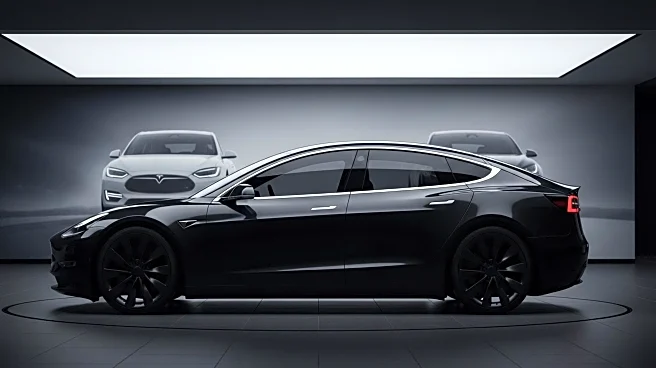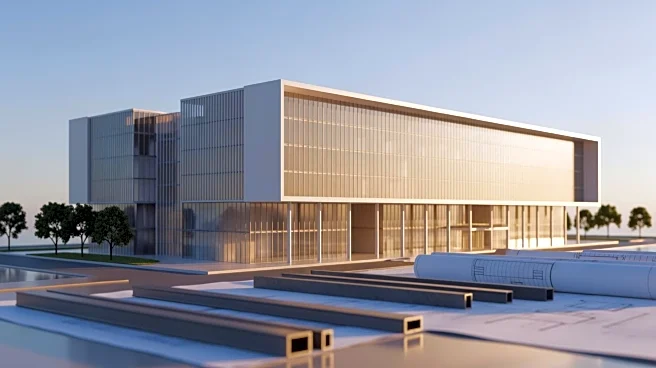What's Happening?
Tesla's market share in the U.S. has fallen to its lowest point since 2017, accounting for 38% of total EV sales in August. This decline is attributed to increased competition from other automakers offering new electric vehicle models and incentives. Tesla's focus on developing robotaxis and humanoid robots has led to delays in releasing new, affordable EV models. The company's valuation and future growth are heavily reliant on these technological advancements, as evidenced by a proposed $1 trillion pay package for CEO Elon Musk.
Why It's Important?
Tesla's decreasing market share highlights the growing competition in the electric vehicle industry, which could impact its dominance and profitability. As other automakers introduce new models and incentives, Tesla faces pressure to innovate and maintain its market position. The shift towards robotics and AI may redefine Tesla's business model, but it also risks alienating its core automotive customer base. The company's ability to achieve its ambitious valuation goals depends on successfully integrating these new technologies.
What's Next?
Tesla may need to accelerate the development and release of new EV models to regain market share. The expiration of federal tax credits at the end of September could further challenge Tesla and other automakers, potentially leading to price adjustments or strategic shifts. Industry analysts will closely monitor Tesla's performance and strategic decisions, assessing their impact on the company's valuation and market position.










